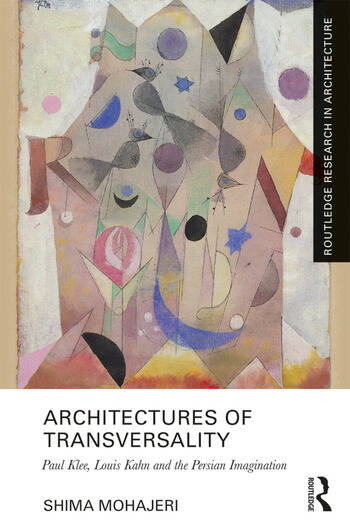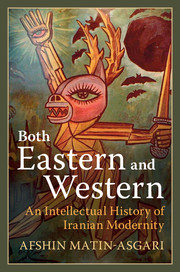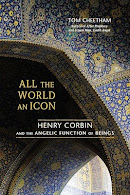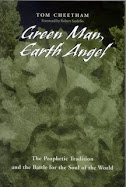"...the Imagination (or love, or sympathy, or any other sentiment) induces knowledge, and knowledge of an 'object' which is proper to it..."
Henry Corbin (1903-1978) was a scholar, philosopher and theologian. He was a champion of the transformative power of the Imagination and of the transcendent reality of the individual in a world threatened by totalitarianisms of all kinds. One of the 20th century’s most prolific scholars of Islamic mysticism, Corbin was Professor of Islam & Islamic Philosophy at the Sorbonne in Paris and at the University of Teheran. He was a major figure at the Eranos Conferences in Switzerland. He introduced the concept of the mundus imaginalis into contemporary thought. His work has provided a foundation for archetypal psychology as developed by James Hillman and influenced countless poets and artists worldwide. But Corbin’s central project was to provide a framework for understanding the unity of the religions of the Book: Judaism, Christianity and Islam. His great work Alone with the Alone: Creative Imagination in the Sufism of Ibn ‘Arabi is a classic initiatory text of visionary spirituality that transcends the tragic divisions among the three great monotheisms. Corbin’s life was devoted to the struggle to free the religious imagination from fundamentalisms of every kind. His work marks a watershed in our understanding of the religions of the West and makes a profound contribution to the study of the place of the imagination in human life.Search The Legacy of Henry Corbin: Over 800 Posts
Tuesday, July 31, 2018
Podcast: Reading James Hillman
A multipart series of readings and textual commentary on the work of James Hillman
by Tom Cheetham
beginning with Episode 75:
As Variously As Possible
also on iTunes, Google Play
and wherever you get your podcasts
Monday, July 30, 2018
ONLINE SHORT COURSE IN ARCHETYPAL PSYCHOLOGY
ONLINE SHORT COURSE IN ARCHETYPAL PSYCHOLOGY
SEPTEMBER, 2018
The Houston Jung Center
The Poetic Basis of Mind: An Introduction to Archetypal Psychology
Archetypal psychology is closely associated with the work of James Hillman. Departing from foundations in Freudian and Jungian thought, it moves in a different air: more Mediterranean, polytheistic, and exhibiting conscious parallels with Buddhism and other Eastern philosophies in its dissolution of literalisms and essentialisms. It provides a psychology of soul where anima is located primarily in the world and secondarily in the human person. It is more than a psychology and functions as a form of life for which metaphor and imagination are primary constituents of the world and the poetic basis of mind and nature is fundamental.
This course is available to live-stream, attend in person, or take in the combination that best suits you.
Registrants will be emailed viewing instructions prior to the event. Please contact Mary Oleyar at moleyar@junghouston.org or 713-524-8253 ext. 23 with any questions.
Member Pricing: $125.00
Non-member Pricing: $135.00
Dates: Sep 5-26, 5:45pm-7:15pm
REGISTER ONLINE HERE
SYLLABUS
Tuesday, July 17, 2018
The Persian Imagination
Shima Mohajeri
Monday, July 16, 2018
Sunday, July 15, 2018
Nature in Mind: On Corbin and Bateson
Systemic Thinking and Imagination in Ecopsychology and Mental Health
Roger Duncan
2018 – Routledge
Nature in Mind explores a kind of madness at the core of the developed world that has separated the growth of human cultural systems from the destruction of the environment on which these systems depend. It is now becoming increasingly clear that the contemporary Western lifestyle not only has a negative impact on the ecosystems of the earth but also has a detrimental effect on human health and psychological wellbeing. The book compares the work of Gregory Bateson and Henry Corbin and shows how an understanding of the "imaginal world" within the practice of systemic psychotherapy and ecopsychology could provide a language shared by both nature and mind. This book argues the case for bringing nature-based work into mainstream education and therapy practice. It is an invitation to radically reimagine the relationship between humans and nature and provides a practical and epistemological guide to reconnecting human thinking with the ecosystems of the earth.
Saturday, July 14, 2018
Both Eastern and Western: An Intellectual History of Iranian Modernity
An Intellectual History of Iranian Modernity
Afshin Matin-Asgari,
California State University, Los Angeles
August 2018
Since the Iranian Revolution of 1979, many Western observers of Iran have seen the country caught between Eastern history and 'Western' modernity, between religion and secularity. As a result, analysis of political philosophy preceding the Revolution has become subsumed by this narrative. Here, Afshin Matin-Asgari proposes a revisionist work of intellectual history, challenging many of the dominant paradigms in Iranian and Middle Eastern historiography and offering a new narration. In charting the intellectual construction of Iranian modernity during the twentieth century, Matin-Asgari focuses on broad patterns of influential ideas and their relation to each other. These intellectual trends are studied in a global historical context, leading to the assertion that Iranian modernity has been sustained by at least a century of intense intellectual interaction with global ideologies. Turning many prevailing narratives on their heads, the author concludes that modern Iran can be seen as, culturally and intellectually, both Eastern and Western.
‘This unique book registers the many sources of influence, hitherto overlooked by the researchers in the field, that have shaped up modern Iran. Afshin Matin-asgari offers a meticulous and compelling account of the cosmopolitan character of modern Iranian intellectual, social, cultural, and political thought. A superb and authoritative reference for scholars and public alike.' Peyman Vahabzadeh, University of Victoria
Subscribe to:
Posts (Atom)











